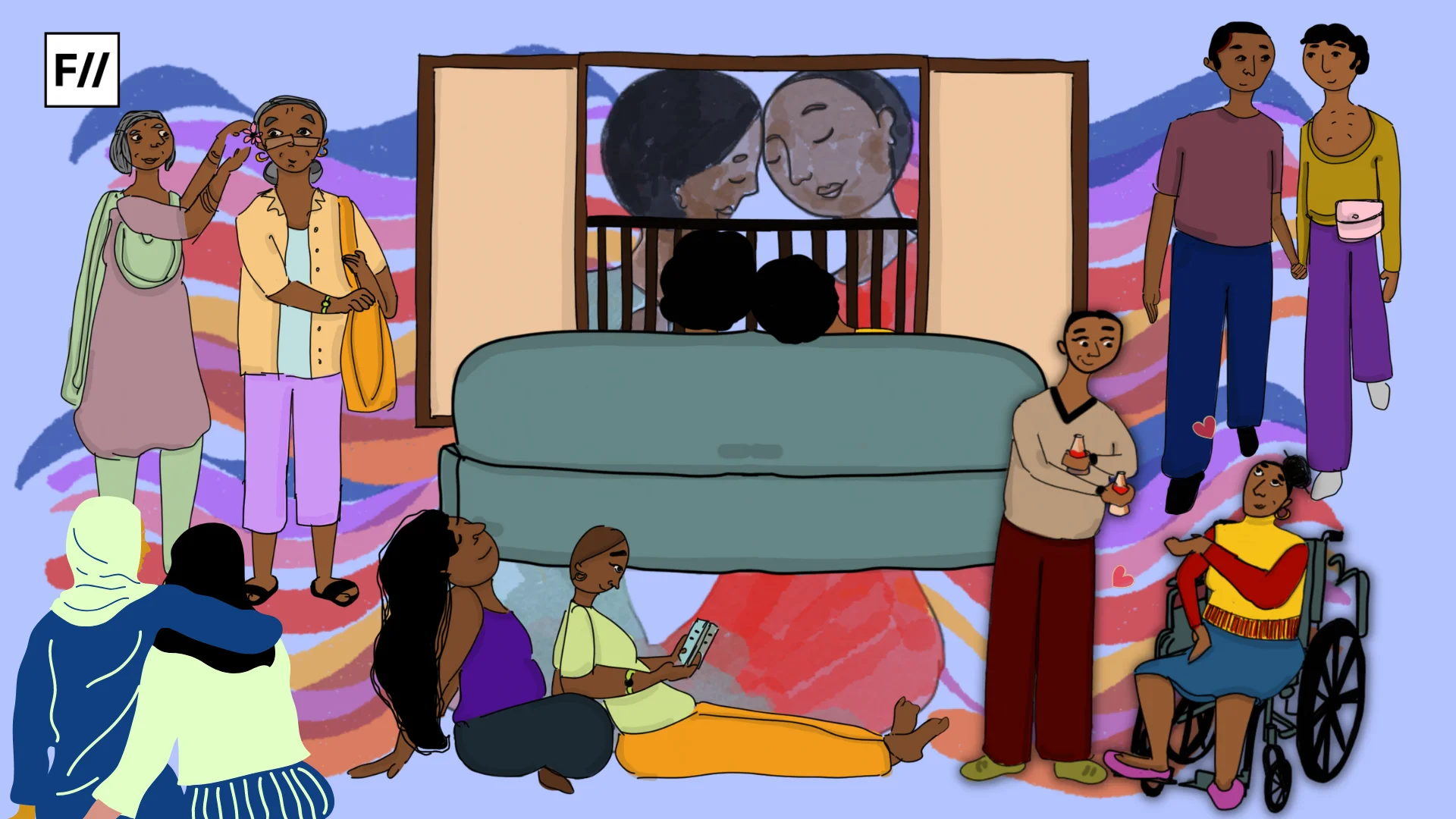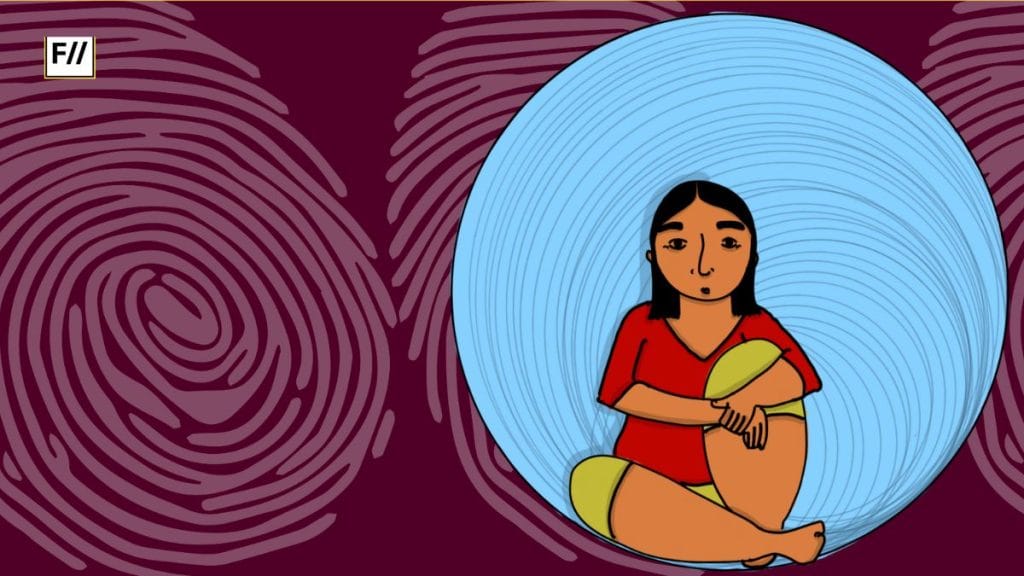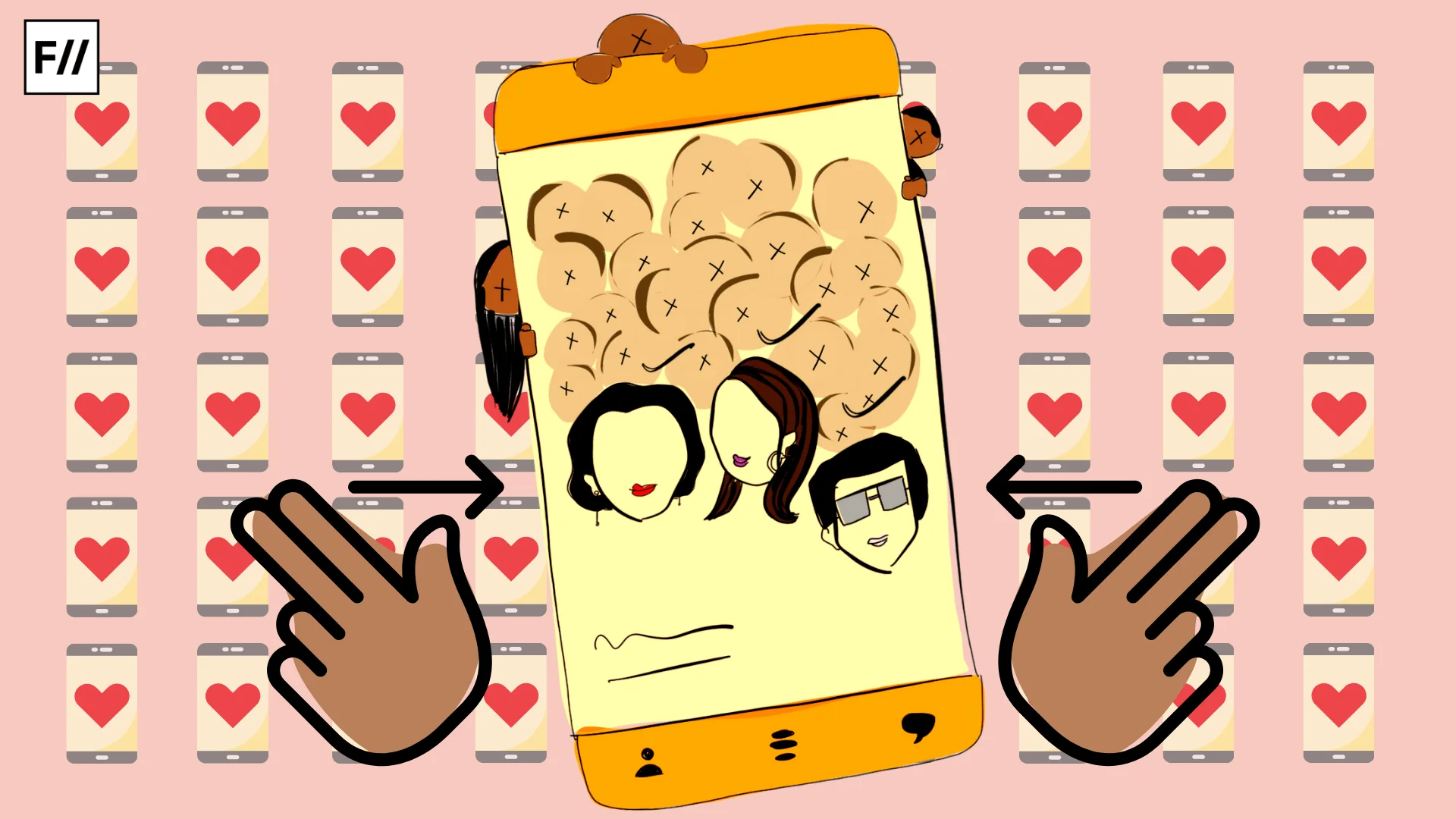The lack of conversation around female sexuality and desire has meant that sexual expression and discovery comes with tremendous guilt for many women. I spent a large part of my teenage years worrying that my sexual fantasies were some sort of sin. I believed I was betraying my parents’ trust by living this parallel, shady life inside my head. There was no peace of mind. All of this, despite being brought up in a fairly progressive household.
I have struggled with social anxiety for a long time now. When I consulted a therapist for the first time, I ‘confessed’ to her that I had been having these fantasies and how it felt like I was raping people in my head. I had definitely heard the word masturbation at that point, but did not realize this was all that I had been doing. I am past those days now and feminism found me somewhere along the way, providing much needed warmth. Yet, as someone with a mental illness, I feel uniquely constrained when it comes to my sexuality.
I believed I was betraying my parents’ trust by living this parallel, shady life inside my head.
As a school girl, I was not really someone who discussed boobs or boys with her friends. I do not know how well I will be able to articulate this – in some sense I had internalised the ‘good girl’ trope and perhaps didn’t think it was appropriate for a school kid to even date.
All the same, this was not quite why I didn’t indulge in such conversations. This was around the time my social anxiety was becoming an actual problem. I had (and still have) great trouble talking to boys. I had always been called quiet by teachers, friends and almost everyone else. It meant I was obedient.
Also read: What Are The Taboos Concerning Female Sexuality?
But as teenage hit, the kind of moral behavior that people associated with me began to feel like an expectation of some sexual ‘purity’ of thought. How would people react if someone like me turned out to be otherwise? It would be embarrassing. I was way too inhibited so I played along as friends said I must have a lot of will power not to have a crush on any boy.
Cut to college. I remember feeling completely self-assured in what I wore during the first few weeks of college. Having always been a lazy shopper, I had a few kurtis, t-shirts and pairs of baggy jeans that my parents or relatives had chosen for me over the past year. As it were, I was way too anxious about how I would make conversation to pay attention to what I wore.
I did feel the judgment mounting, but as long as people did not voice anything in my face I was just a little concerned about being perceived as meek and politically naïve for not speaking. Even so, I was conscious of gradually becoming, yet again, the good girl in the eyes of classmates and seniors. But I could brush it off until the day my roommate joked that I was too ‘sanskaari’ to involve myself in the kind of things she was discussing with her friends just then. And as if this wasn’t enough, the same friend recently told me that I was one ‘pavam’. This time I asked her what it meant. She said it meant that I “wasn’t into anything sexual”.
These were by no means lone instances. Every time someone has uttered something along these lines, it has felt like I would never be able to affirm myself as a sexual being. I want to emphasise that because I am neurotic in the particular way that I am, what I have described here is experienced as more than the sum of its parts by me. It takes a toll on my emotional well-being and self-image. It’s a popular myth that people with disabilities are not sexual. It only makes sexual expression all the more difficult for them. As a woman with a mental health condition, knowing this helps me cope with my own situation.
Depending on where she stands on an intersectional spectrum, a woman is loose, chaste, bold, naïve, smart, or stupid.
I am certainly very sensitive to others’ judgment of me. But it’s worth noting whose judgment I am wary of; whose prerogative it is to judge and vocally at that. I had heard of the elitist culture of my college long before I arrived here but nothing prepared me for what it would translate to for someone like me. I feel a little queasy pointing out this class dynamic because I am the kind of person who would end up just here, financially and socially well off as I am.
However, it is worth noting how I became increasingly conscious of my not-so-trendy clothes. Trends are set by the privileged and you can be labeled a lot many things for deviating from the trend. It is quite beyond me on what parameters such labeling is allowed to extend to someone’s sexuality. It would seem that a quiet, plainly dressed woman is an asexual being.
As I have mentioned, I do link my anxiety-induced silence and the stereotyping around that to not being able to be sexually expressive. But my mental health and non-signs of upper middle class socializing are not all there is to such stereotyping. Much of the scrutiny that I am subjected to has to do with my position as a woman. Women persist amid countless stereotypes. Depending on where she stands on an intersectional spectrum, a woman is loose, chaste, bold, naïve, smart, or stupid.
My social anxiety means that on some level I do not have control over how I present myself to others. However, if only I hadn’t been stereotyped the way I was, I would have been more comfortable talking to my friends and the realisation that they were no different would have eased my guilt a little.
Also read: The Sex Life Of Trans Men And Why Our Sexuality Matters
Add to this, the taboo attached to female sexuality! The ignorance about female sexuality only further fed into my pain. Over time I could bring myself to open up to close friends but I am still struggling to understand my inhibitions and overcome them. The last thing I would want is for someone to offset what little progress I make with attitudes and remarks that their privilege and ignorance afford them.
Featured Image Source: Literature Run





As a male from Africa with the same diagnosis, i can almost relate to everything you said. Only thing that separates our struggles is the gender. Good luck to you, and i hope you get better.